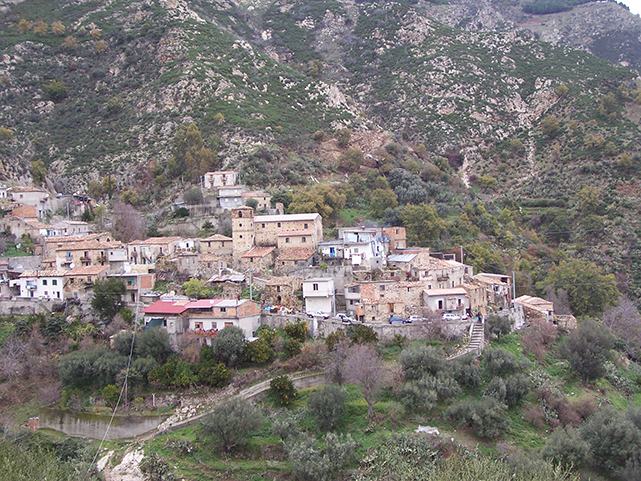A weekend among the ancient villages of Greek Calabria where the rhythms of daily life are still slow and time seems to have stopped!
Here, in fact, Greece has lived and lives. For the tourist who wants to become a visitor, the adventure of a perceived and sought-after Greekness opens up: in the faces of the people, their gestures, their language. But also in the ruins of the endless little Byzantine churches, in the shreds of surviving frescoes, in the castles, witnesses to all the defences, often desperate, and all the assaults.
O àrio den èchi sinòria – The air has no boundaries
Travel plan
Day 1: Bova – One of the Most Beautiful Villages in Italy
Arrival of the group in the early afternoon (recommended around 2 p.m.) in Bova, the capital of Grecìa Calabria and the most important and well-preserved old town of the Greeks of Calabria. Accommodation at B&B and/or houses belonging to Ospitalità Diffusa. Afterwards, meet the guide for a visit to the Museum of the Greek-Calabrian language dedicated to Gerhard Rohlfs. The visit to the museum allows you to learn more about Griko language, its history and its archaic peculiarities through the exposition of the linguistic theses formulated by Gerhard Rohlfs who, since 1924, claimed the Magna Graecia origin of the language that still lives in the Hellenophone villages of Bova, Gallicianò and Roghudi, in the most inaccessible slopes of southern Aspromonte. Afterwards, a tour of the historical and archaeological interests in the flourishing old town of Bova, one of the Most Beautiful Villages in Italy (I Borghi più belli d’Italia), whose noble palaces, narrow streets, the Sanctuary of San Leo, the Cathedral, and the ruins of the Norman Castle are all worth a visit.
Dinner at Grecanico Restaurant by San Leo Cooperative, 400 meters from the main square of the village. Overnight stay in Bova.
Day 2: Gallicianò and Pentidattilo
Breakfast. Transfer (about 40 minutes) to Gallicianò. Gallicianò, situated 620 metres above sea level and within Aspromonte National Park, is considered the most Greek village in Italy as well as being the ethno-musical home of Grecanica. Guided tour of the village, the Orthodox Church and the Ethnographic Museum of traditional arts and crafts, a condensed version of the local rural history. Typical lunch at Taverna Greca.
At 3 p.m. approximately, departure for Pentidattilo. Pentadattilo (from the Greek word Pentedàktylos, meaning ‘five fingers’) is located 35 km from Reggio Calabria on the southern Ionic coast. The small, semi-abandoned village, a true ethno-architectural jewel, retains its charm and is a true historical heritage to be known and protected. Guided tour of the village with a short walk through the narrow streets and a visit to the craft workshops.
Afterwards (around 6 p.m.), return trip.



